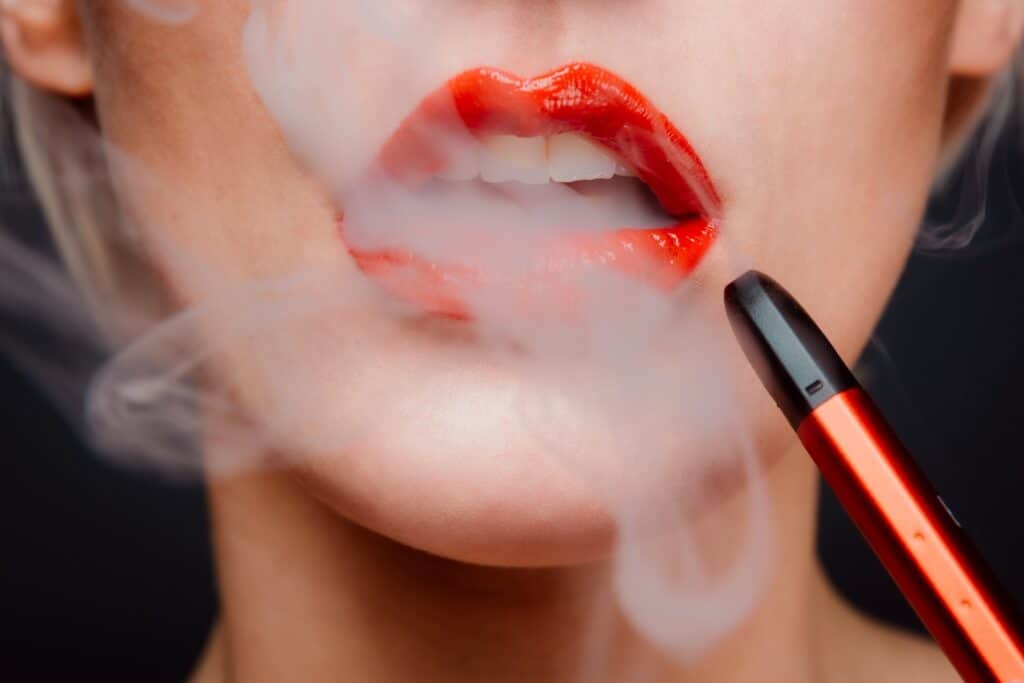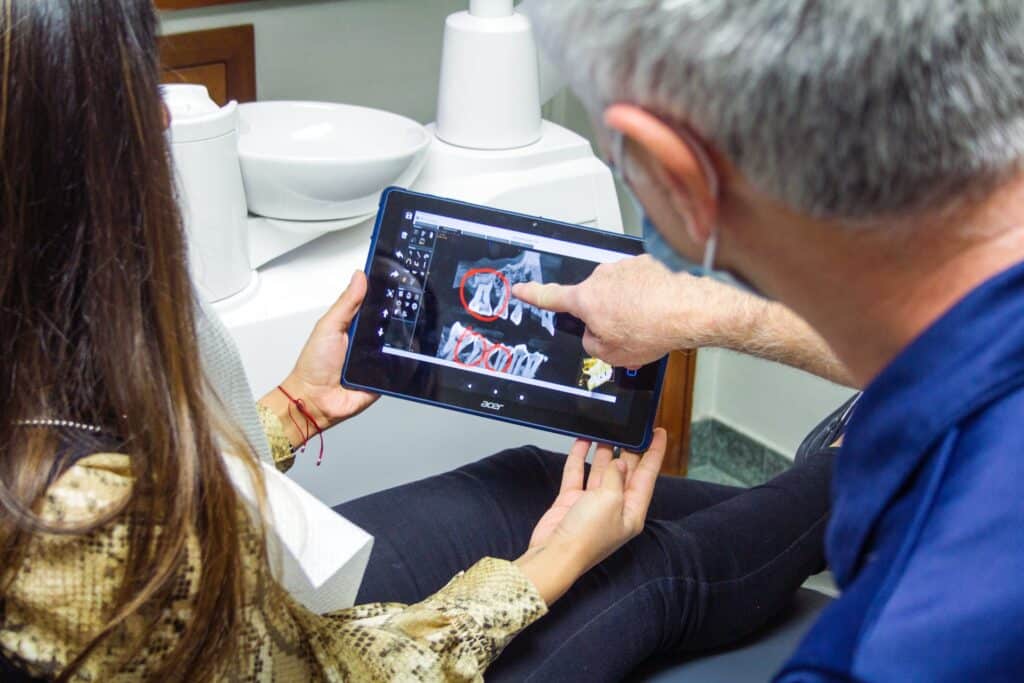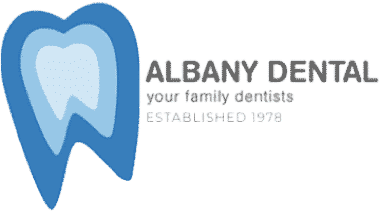We have all heard that smoking and vaping is not good for your health, but have you considered the effects it has on your oral health?
Smokers are more likely to lose their teeth than non-smokers, as it can affect the mouth, gums and teeth in many ways. Whilst the number is declining each year (which is great to see!), the number of 18-year-olds + who are smoking remains at 14.7% (tobaccoinAustralia.org)
How smoking and vaping affect your mouth and overall oral health:
- Smoking can increase your risk of developing gum disease (periodontitis). This in turn results in bone loss and teeth not being supported. This means they may fall out, or need to be taken out by a dentist.
- Smoking can lead to slower wound healing, and is why dentists recommend delaying smoking after having a tooth extracted. Otherwise, dry socket may develop, which is a painful condition.
- Smoking can increase the risk of oral cancers, among other health issues.
- Tobacco and nicotine can cause staining that is hard for you to get off at home, and needs to be removed by an oral health professional.
- Smoking can cause bad breath
- Smoking can affect how much saliva is produced by the mouth. Saliva is essential in protecting our teeth.
So, as you can see, vaping and smoking has a large impact on our oral health. Let’s delve a little deeper into these issues.

Image: chiara-summer-3ATyg1Iqw2M-unsplash
GUM DISEASE
Smoking is associated with approximately 80 percent increased risk of developing severe gum disease, bone loss and other periodontal diseases compared to people who do not smoke. (Source: Australian Dental Association).
The two stages of gum disease are gingivitis and periodontitis. If periodontitis is not treated, the bone that holds teeth in place can become damaged. This means that teeth can become loose, fall out or need removal by a dentist.
Losing teeth at the back of the mouth means that you may have problems chewing food. If towards the front, it can affect eating, your appearance and perhaps cause problems with speech. Teeth are helpful in holding the shape of the lower part of the jaw.
In addition to that, but gum disease may be difficult to detect early in a smoker, as the usual tell-tale signs of bleeding or inflamed gums are not present, due to the reduced blood supply to the gums.
Some symptoms to watch for:
- Red, swollen, tender, bleeding gums
- Discharge (pus) coming from your gums
- Gums that are loose and pull away from your teeth
- A bad taste or bad breath
- Loose teeth
- Spaces opening between your teeth.
ORAL CANCER
Oral cancer includes tongue, cheek, roof or floor of the mouth, and lips. Smoking is one of the main risk factors for mouth cancer.
There are approximately 2500 new cases of oral and pharyngeal cancer registered in Australia each year (Australian Institute of Health and Welfare).
Combining alcohol and smoking means that there is an even greater risk of developing mouth cancer, rather than those who just do one or the other.
Early diagnosis is important so that treatment can begin right away, before the cancer can spread to other parts of the body. We check for this and many other factors at Albany Dental at your routine examination.
Contact us if you develop any of the following signs and symptoms:
- Persistent ulcer in the mouth or on your lip that does not disappear after 7-10 days (particularly if the ulcer is not painful)
- White or red patch in the mouth
- Swelling in the mouth
- Dentures suddenly not fitting properly.

Image: mathew-macquarrie-lzcKZlVPYaU-unsplash
STAINING AND BAD BREATH
Nicotine and tar in cigarettes can cause stained or yellow teeth. Brushing your teeth twice daily can help to prevent stains from forming, or decrease the amount of staining. Some set-in stains can only be removed by a dental professional with a thorough scale and clean.
Smoking and vaping can cause the mouth to be dry, and also cause certain bacteria to flourish in the mouth. These bacteria produce toxins which have an odour and can cause bad breath. Gum disease, persistent cases of dry mouth and substances in cigarettes can all cause bad breath.
VAPING
It is also important for those patients who vape to let their dentist know. This way they are able to detect and treat any oral health problems, and give advice. Whilst there needs to be more research into vaping, early studies show that is has just as negative effect on health as smoking does. When you vape, you inhale e-liquids (also called vaping juice), which even when labelled nicotine-free, can contain harmful substances such as heavy metals, volatile organic compounds and cancer-causing chemicals. Vapes should not ne considered safer than traditional cigarettes. E-cigarettes heat up the mouth creating the perfect environment for harmful bacteria, priming your mouth for disease. With less saliva in your mouth because of the mouth drying effects of vaping, plaque bacteria can multiply and an infection below the gumline can occur. Left untreated, this infection can turn into gingivitis or periodontal disease.

Image: quang-tri-nguyen-T-iifFLk3KU-unsplash
WHAT TO DO NEXT
The good news is, that those who quit smoking can eventually have the same lessened risk of developing gum disease and oral cancer as those who have not smoked. Quitting smoking and vaping can improve your oral health significantly – even after smoking for a long time.
- Try to quit smoking. If you need help with this, reach out to us, your doctor or Quitline.
- If you find that difficult, try to reduce the amount of smoking or vaping that you are doing in stages.
- Clean your teeth and gums twice a day with a fluoridated toothpaste
- Use dental floss or interdental brushes to clean between the teeth, once daily
- Visit your dentist every six months for a routine examination and clean.
- Avoid having a dry mouth, by drinking plenty of water and chewing sugar-free gum to stimulate saliva flow. This is especially important if you take medications that have dry mouth as a side effect.
- Limit alcohol and recreational drugs.
In conclusion, it is always best to get professional advice. For more information, come see one of our friendly and knowledgeable dentists. Book here or call (02) 4324 1181.











